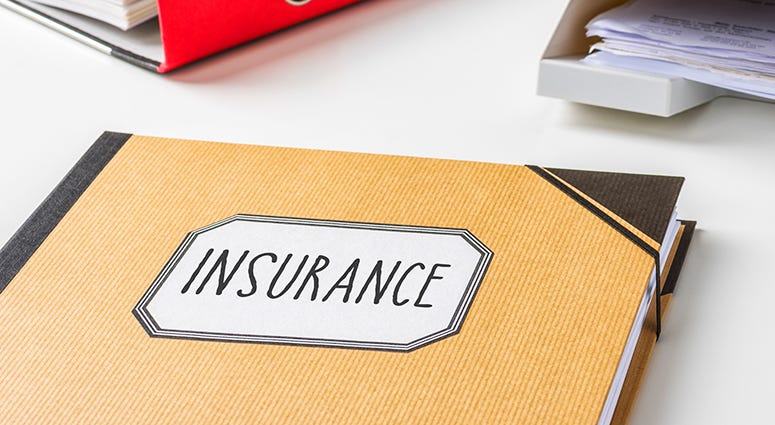
Insuring a business is a major expense, but having no insurance is equally risky. Fire, flood, natural disasters, industrial accidents, burglary, injury or general property damage can add up to losses that could put you out of business.
Most small businesses are covered under one or more of these insurance types:
Property and Casualty: Covers damages and losses to a building and its equipment and inventory. Fire, flood, severe weather, theft, vandalism, or unforeseen natural catastrophes can cause property damage and loss. If your business is in the home, a commercial policy might be needed to cover business equipment and inventory.
General Liability: Also called commercial liability, this insurance covers legal costs if a third party claims injury or damage caused by the company or its employees. Alleged harm or injury can be related to a product, service, or an accident on the premises. Commercial liability is not mandatory in certain states, such as Arizona, Florida, Georgia, Louisiana, Montana and Texas. However, companies that partner with your business might contractually stipulate liability insurance. This site provides state-specific business insurance guidelines.
Commercial Auto: Covers commercial and personal vehicles used for business. Commercial auto refers to cars, trucks, vans and trailers, but not bicycles, pedicabs or motorbikes.
Workers Compensation: Required by law, workers compensation covers payment to employees injured on the job.
The insurance you need depends on the type of business you own and the state in which you do business. Mostly, it is industry related. You might need coverage beyond standard small business insurance if your company is in an industry in which risk is potentially higher. Industries particularly open to risk are hospitality, food services, ride sharing, manufacturing, private medical and dental practices, construction and home improvement.
Hospitality
Airbnbs, hotels, motels, entertainment venues, casinos and resorts are in the hospitality category. These businesses, whether large or small, would need an enhanced liability policy to protect against a guest's property loss, accidents, and theft and criminal activity.
Food Service
A business that serves food and drink needs restaurant insurance. This is a coverage combo that protects property, employees, customers, and restaurant equipment and inventory. Anything can happen in the restaurant business, so owners need to be prepared, including the owners of food trucks, a fast-growing small business.
Ridesharing
Ridesharing outweighs other modes of transportation when it comes to local travel. If you rent out your car or drive for Lyft or Uber, rideshare coverage might bridge the gaps in your personal auto and other coverage. More insurance companies are now offering rideshare policies Although it is not available in all states, it's worth looking into because of potential savings you won't see in a commercial auto policy.
Manufacturing
Manufacturers need extra protective insurance to recover from product recall, product or equipment failure, and personal or employee injury. Workers compensation and general liability insurance may not completely tide you over. Look for insurance companies that offer coverage to small businesses engaged in manufacturing.
Private Medical and Dental Practice
Malpractice insurance is mandated, although the cost of coverage varies from state to state.
Home Improvement and Construction
In addition to general liability insurance, contractors from handyman to full-service construction should get professional liability coverage. Also known as Errors-and-Omissions (E&O), professional liability provides extra protection against civil lawsuits and negligence claims. This insurance covers mishaps in other industries, too. Besides being insured, contractors are often required to be bonded. So while applying for insurance coverage, get yourself a surety bond.
BOP or Business Umbrella Insurance?
So what's the difference? A BOP (Business Owner's Package) can reduce the cost of small business insurance by combining property, general liability, and other types of insurance into one package. Not standard for every small business, a BOP is often custom-tailored to a business owner's insurance needs. Umbrella insurance provides an extra layer of protection beyond the limits of an existing commercial liability policy. Umbrella coverage can be applied to a standard small business policy or a BOP.
Personal Insurance
Don't forget to insure yourself and your employees. Give them health, dental and disability insurance. Health insurance is a requirement. Dental and disability are optional, but your employees will appreciate these extra health and wellness benefits. Disability allows you and your employees to receive income if unable to work.
Cyber Insurance
Most small businesses today are on the internet, which means the risk of external hacking, data theft, denial of service, interruption of POS transactions, and ransomware. Cyber insurance protects businesses and the self-employed from risks that come with the internet. Traditional small business insurance often does not cover cyber attacks, so you'll likely need to purchase cyber insurance separately. Never assume hackers won't notice your small business. Locally-owned clam shacks and mom-and-pop variety stores have been hacked and held for ransomware. Another layer of protection through cyber insurance will boost security.
This article was written by Linda Cameron for Small Business Pulse